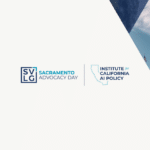The SVLG Launch Circuit Speaker Series last week hosted a lively discussion with former US Secretary of Commerce Carlos Gutierrez touching on immigration, workforce effectiveness, and leadership. Gutierrez is also the former CEO of The Kellogg Company, where he was both the youngest and first Hispanic CEO in the company’s 100-year history.
As an immigrant from Cuba to Mexico City, Gutierrez found a unique path to becoming the CEO of a multinational corporation and the Secretary of Commerce of the United States. His family left Cuba about a year and a half after the revolution in the 1950s, when he was just seven years old. The immigrant experience never left him.
“You went from having something to having nothing. And you keep that in your mind, this idea that you could lose everything from one second to the other,” said Gutierrez. “And I think that becomes a motivator for the rest of your life.”
Gutierrez started out at The Kellogg Company as a sales representative in Mexico City, where he drove a Volkswagen van to mom and pop stores all over town. Entering the workforce without a college degree, he stayed focused on hard work and results and benefited from strong relationships with mentors and peers.
Gutierrez indicated that the future employees will be less valued by their diplomas and more by their skills, in what he calls a skills-based meritocracy.
“The future is not about the diploma. A diploma is great as a great place to start, but if you don’t upskill along the way, it’s not going to take you very far,” he said. “It is about will, sheer will. It’s this idea that I’m just not going to fail, and it’s the will to work harder to solve the problem, to do whatever you need to do.”
Workforce Satisfaction
Having succeeded against the odds in his own career, Gutierrez is determined to help others do the same. To this end, in 2020 he founded EmPath, where he now serves as CEO. The company uses an employee’s digital footprint to infer their skillset, reducing attrition and increasing team effectiveness.
Gutierrez is focused on gaining a better understanding of job applicants and current employees, which leads to more job satisfaction and less attrition. And with replacing an employee coming at more than $50,000 in lost productivity and other costs, placing people in the right roles and finding out how to make them happy can mean big savings for employers.
One common experience for employees, especially in a remote work environment, is that they don’t feel valued, Gutierrez said. This leads to reduced loyalty to a given employer, and higher turnover. Empath looks at how to change this through personalized development plans, coaching, and supportive growth. He also notes that companies can work more efficiently and improve company morale when they have openings by identifying internal candidates.
“Your best candidate is probably in the company, but you just don’t know it,” he said.
Gutierrez cautions that technical skills like coding are not the only things employers should focus on. He sees “soft skills” as essential, attributing value to things like empathy, listening, persuasiveness, leadership, and collaboration.
A Diverse Workforce
A staunch supporter of a diverse workforce, he cautions that it’s about more than just filling seats – it’s making sure that the environment is supportive once employees enter the company.
“If you hire a lot of people who are diverse candidates and they come in and they don’t like the environment, they leave,” he said. “It’s a lot more than having affinity groups.”
And when success is about skills, diversifying the workforce means that certain groups need additional access to upskilling opportunities.
“If we’re serious about promoting minorities, let’s give minorities special training development programs that will upskill them,” Gutierrez said.
Remote Work
Covid, of course, has changed the game and brought additional skills to the forefront. Gutierrez sees some opportunity for an increase in productivity with online work, but he also sees a loss of loyalty to employers when people only see each other online.
“You know, I have eight or nine Zoom calls a day. I don’t think I had eight or nine meetings every day at the office. But the one thing that is critical is the loyalty factor, the people factor,” he said.
Leadership is also a challenge online, where people miss out on body language and eye contact and workers ultimately feel less connected to their colleagues and their jobs. And with remote work set to continue, it’s a challenge that needs attention.
“You can exert leadership on a Zoom call, but there’s nothing like being in front of people. There’s nothing like looking them in the eye. There’s nothing like reading body language, so that will be a challenge,” he said.
Whether online or in person, the main component of a successful workplace with engaged, long-term employees, Gutierrez said, is a sense of belonging. Everyone needs to feel that they are a part of the group and can be themselves at work.
Returning to his own journey, Gutierrez noted that his own success was rooted in authenticity. Even in relation to his mentor, he had to find his own path, he said. This required self-awareness and courage, but it led to better relationships and more growth.
“You know, you have to be yourself,” he said, noting that it took him many years to do so. “The quicker you can do that, the better off you’ll be.”
###



